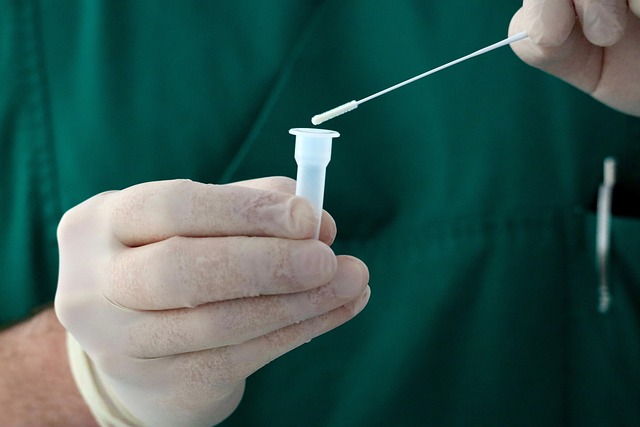A General Health Blood Test UK assesses LDL (bad) cholesterol, HDL (good) cholesterol, and total cholesterol levels as key markers of overall well-being. Optimal total cholesterol below 5mmol/L reduces cardiovascular risks of heart disease or stroke. Healthcare providers use these numbers to guide lifestyle adjustments and medical treatments, with reference ranges: below 200 mg/dL (optimal), 200-239 mg/dL (borderline high), and above 240 mg/dL (high). Regular testing, balanced diet, exercise, reducing saturated fats, boosting HDL through activity, avoiding smoking and stress are vital for maintaining healthy cholesterol levels.
Cholesterol levels are a key indicator of our overall health, playing a crucial role in maintaining cardiovascular wellness. This article guides you through the process of cholesterol level testing using blood tests in the UK, explaining the significance of different cholesterol types and how to interpret results. From understanding the science behind the test to adopting lifestyle changes for better general health, this comprehensive overview equips you with knowledge to take control of your cholesterol levels.
- Understanding Cholesterol Levels: What Do They Mean?
- The Process of Cholesterol Blood Testing in the UK
- Interpreting Results and Maintaining General Health
Understanding Cholesterol Levels: What Do They Mean?
Cholesterol levels are a crucial indicator of general health, and understanding what they signify is essential for maintaining well-being. A general health blood test UK often includes measurements of low-density lipoprotein (LDL), high-density lipoprotein (HDL), and total cholesterol. LDL, often referred to as ‘bad’ cholesterol, can build up in the arteries, increasing the risk of heart disease. Conversely, HDL, or ‘good’ cholesterol, aids in removing LDL from the bloodstream, thereby reducing this risk.
Total cholesterol refers to the combined amount of LDL and HDL. While a level below 200 mg/dL is considered optimal for general health, values between 200-239 mg/dL are classified as borderline high, and above 240 mg/dL indicates high cholesterol levels. These measurements help healthcare professionals assess cardiovascular health risks and guide recommendations for lifestyle changes or medical interventions to maintain healthy cholesterol levels.
The Process of Cholesterol Blood Testing in the UK
Cholesterol level testing through blood tests is a common procedure in the UK as part of general health assessments. Typically, a healthcare provider will take a small sample of your blood, usually from a vein in your arm, using a needle. This sample is then analysed to measure the levels of low-density lipoprotein (LDL) or ‘bad’ cholesterol, high-density lipoprotein (HDL) or ‘good’ cholesterol, and total cholesterol. The process is quick and relatively painless, often conducted as part of an annual general health blood test in the UK.
During the test, the nurse or healthcare professional will clean your skin before inserting the needle. They’ll draw a specific volume of blood into a tube attached to the needle, ensuring they get enough for accurate analysis. The sample is then sent to a lab where specialized equipment measures the cholesterol levels. Results are usually available within a few days, offering valuable insights into an individual’s cardiovascular health and guiding any necessary lifestyle changes or medical interventions.
Interpreting Results and Maintaining General Health
When interpreting your cholesterol level results, it’s important to understand what each number represents and how they contribute to your overall health. Your general health blood test UK will typically include measurements for total cholesterol, LDL (low-density lipoprotein) cholesterol, HDL (high-density lipoprotein) cholesterol, and triglycerides. A total cholesterol level below 5mmol/L is considered optimal for maintaining general health. If your levels are high, it could indicate an increased risk of heart disease or stroke.
Maintaining general health through a balanced diet, regular exercise, and healthy lifestyle habits is crucial alongside managing cholesterol levels. Dietary changes such as reducing saturated fats and trans fats can significantly impact cholesterol levels. Regular physical activity helps boost HDL cholesterol (the ‘good’ cholesterol) while keeping LDL cholesterol (the ‘bad’ cholesterol) in check. Smoking cessation and stress management are also vital components of maintaining optimal cholesterol levels and overall general health.
Cholesterol level testing through blood tests in the UK is a vital step towards maintaining general health. By understanding what your cholesterol levels mean and interpreting the results, you can make informed decisions to lead a healthier lifestyle. Regular general health blood tests are essential tools for proactive healthcare, enabling you to navigate and manage your cholesterol levels effectively.
